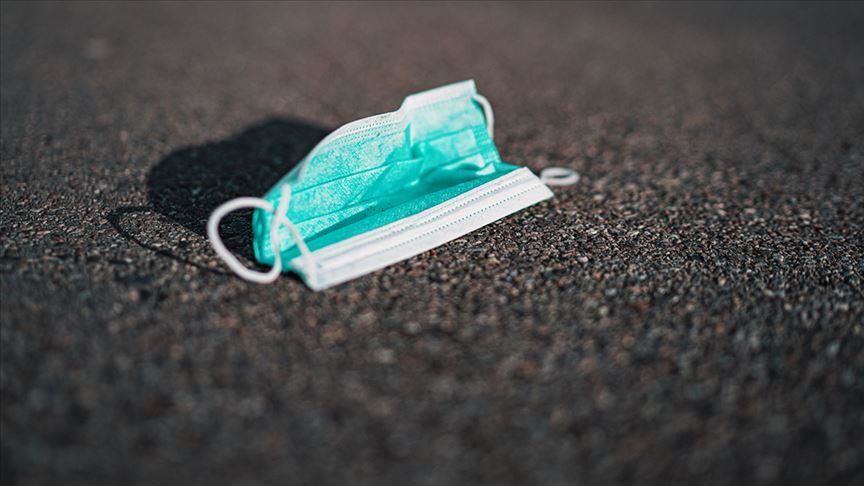Does COVID-19 waste get special treatment?
It is not feasible to treat all medical products used in society as medical waste, says expert

ANKARA
As the use of medical masks and gloves rises due to the coronavirus pandemic, many are wondering where this medical waste ultimately ends up once it goes into the trash.
Dr. Gulay Kilic, an infectious disease specialist at Medicana International hospital in Ankara, Turkey’s capital, told Anadolu Agency that all medical waste is treated the same even before coronavirus.

"Doctors consider any equipment that comes into contact with bodily fluids during each operation as medical waste. There’s been no technical change in the processing and disposal of waste from COVID-19 patients,” she said.
"COVID-19 was approached more cautiously, as it was initially an unknown virus. There was extensive use of medical equipment,” she added.
She said it is not feasible to treat all medical products used in a society as medical waste.
"There are many types of waste such as medical waste, hazardous waste, domestic waste, and recyclable waste covered by the waste regulations of Turkey’s Environment and Urbanization Ministry.
"Medical, dangerous, and infectious waste is limited to health institutions. In other words, waste from health institutions is defined as medical waste," Kilic said.
She said that in Turkey, ministries are in charge of controlling this waste while health institutions are responsible for collecting them properly.
"Municipalities, for their part, are responsible for transporting them and sterilizing, disposing, or processing them. When such a procedure exists, it is very labor intensive and unsustainable to collect and transport masks and gloves that may be medical and add them to this waste process," she said.
As to why only hospital equipment is being disposed of as medical waste, Kilic said a mask in a hospital is more likely to be infected, as it was used by a confirmed ill person or contaminated with other infectious material.
No rise in medical waste
Many people believe the amount of medical waste is rising as nearly everyone has been using masks, but Kilic said this is a misconception.
"A meeting of medical waste companies and hospital officials responsible for medical waste said there had been no increase in the amount of medical waste.
"Surgery, patient hospitalization, outpatient clinics and other medical procedures have been suspended unless absolutely necessary. So unless a hospital has been dealing with COVID-19 intensely, medical waste will remain almost the same, but the disposal of materials has risen as sensitivity to the disease has climbed," she said.
Kilic stressed that the World Health Organization (WHO), the US Centers for Disease Control and Prevention (CDC), Turkey’s Health Ministry and all other health authorities have stated that contamination from waste does not pose a serious risk.
Authorities have mandated more careful and frequent collection of these wastes and their disposal in two durable plastic bags in case the first is damaged.
"Even if we don’t see a pandemic again, it will continue like the seasonal flu under the best scenario,” she said.
"Treatment for it may be found near the end of the year. Let's maintain social distancing, take care to wash our hands, and not leave home unless we have to work. Let's use and dispose of medical equipment correctly," she said.
Under Urban and Environment Ministry regulations, medical waste consists of pathological and infectious waste, sharp objects, and radioactive waste that threatens human and environmental health. It also includes domestic waste produced in healthcare centers.
Medical waste is a very important waste group carrying a high risk, so the rules aim to minimize the formation and amount at the source and ensure that medical, hazardous, and domestic waste is properly separated.
The waste collected and brought to disposal facilities is automatically sterilized under high pressure and heat in specifically designed ovens. It is then shredded and transported to sanitary landfills.
Anadolu Agency website contains only a portion of the news stories offered to subscribers in the AA News Broadcasting System (HAS), and in summarized form. Please contact us for subscription options.



